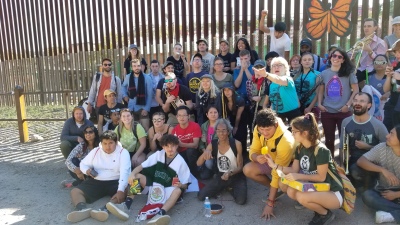Fallout from the Border War

While President Trump has been trying hard to scare the U.S. population into believing that we are about to be invaded by asylum seekers, in order to gain support for his wall, the reality is that Trump’s “border war” is causing real hardships for those living on both the U.S. and the Mexican side of the border. Tijuana, Mexico, has seen tourism plummet. Not only are U.S. residents having a more difficult and lengthy time crossing the border back into the United States, but there are also fewer tourist destinations to visit in Mexico.
The asylum seekers can’t be blamed for everything, however. Some suggest that the Tijuana government is responsible as they increased rents along the historic “Revolution Avenue” resulting in most of the smaller “mom & pop” stores shutting down. Whatever the cause, nowhere to go and long waits at the border, coupled with fears that the border could be closed at any time, is causing tourism to dry up in Tijuana.